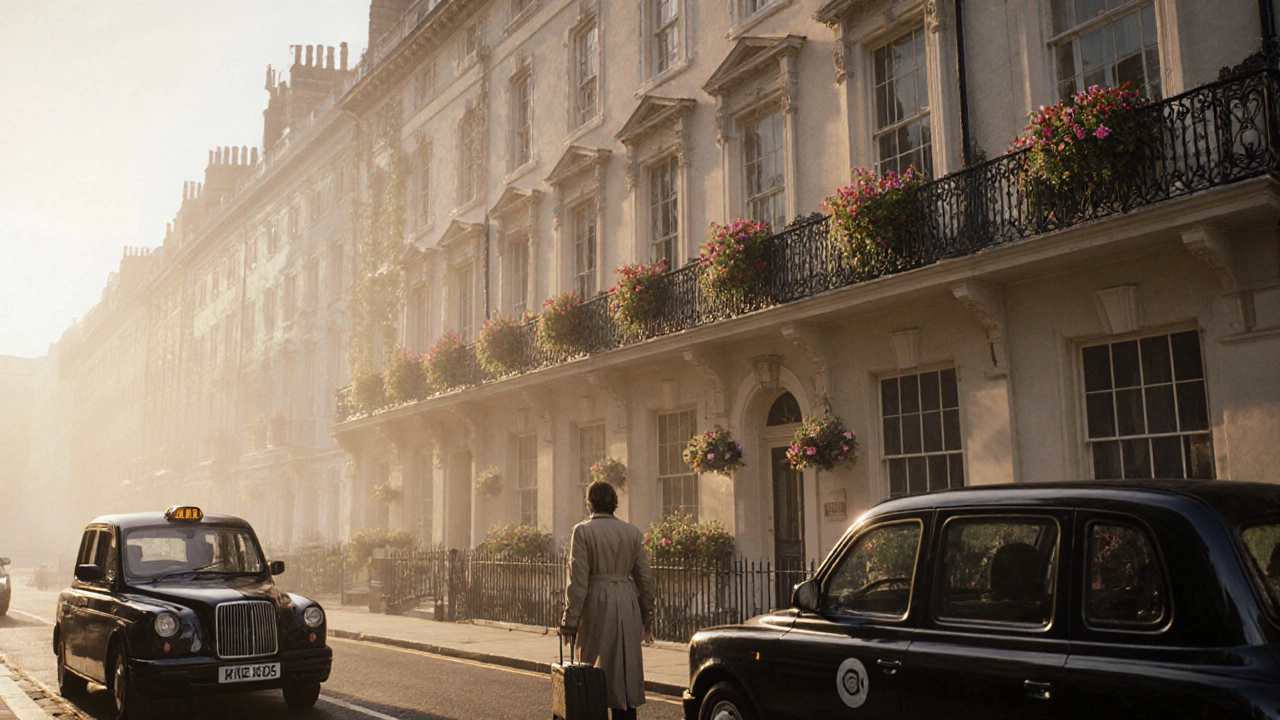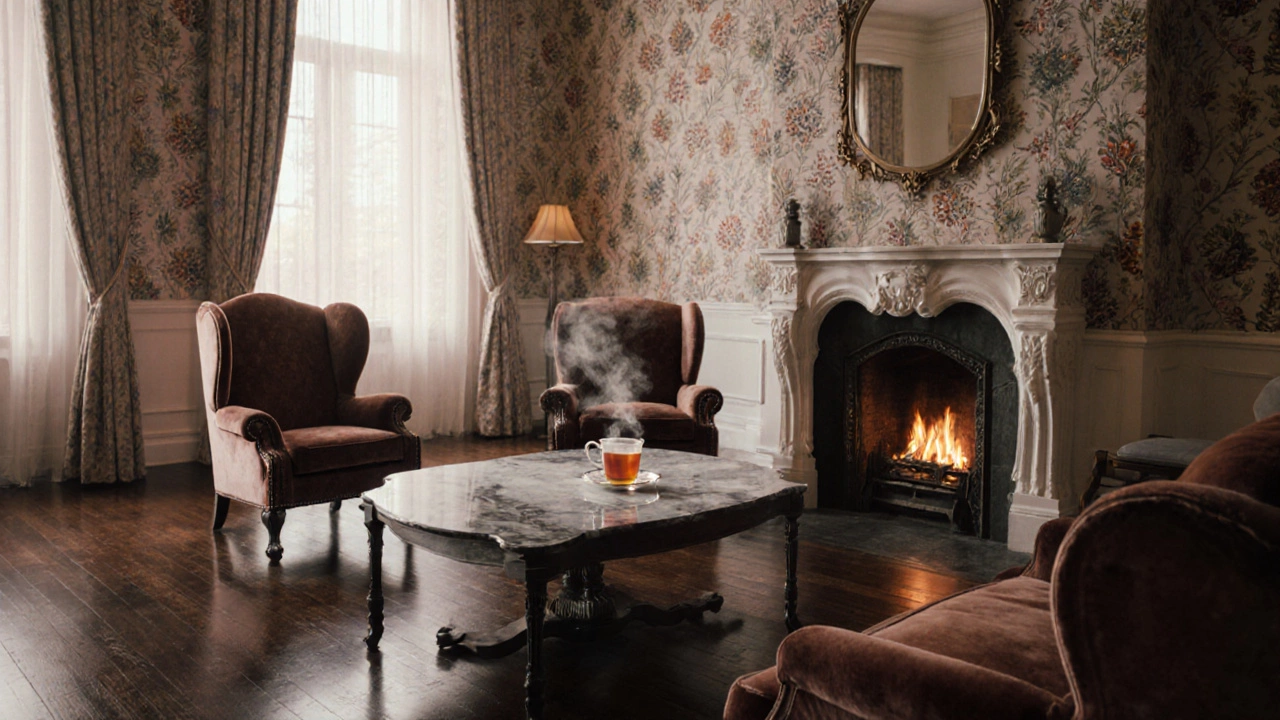Are Boutique Hotels More Expensive? A Clear Guide to Pricing and Value
 Sep, 27 2025
Sep, 27 2025
Boutique vs Chain vs Budget Hotel Price Comparison
Enter your travel details to compare average nightly rates and determine which type of hotel offers the best value for your budget.
Boutique Hotel is a small, design‑focused lodging property that offers personalized service and a strong sense of place, typically featuring fewer than 100 rooms, unique décor, locally sourced amenities, and cultural immersion. Travelers often wonder if staying at a boutique hotel will burn a bigger hole in their wallet compared with staying at a chain or budget property. This article breaks down the price puzzle, compares key attributes, and gives you practical steps to enjoy boutique charm without overspending.
What Makes a Boutique Hotel Different?
Unlike Chain Hotel, which is a standardized brand with dozens or hundreds of locations worldwide, a boutique hotel is usually independently owned or part of a small collection. The primary distinctions are:
- Size: Most have under 100 rooms, allowing staff to recognize repeat guests by name.
- Design: Interior styling is often curated by local artists, reflecting regional architecture or history.
- Service: Staff‑to‑guest ratios are higher, leading to concierge‑level assistance even at modest price points.
- Location: They favor neighborhood streets, historic districts, or scenic locales rather than airport‑adjacent zones.
These factors create a distinct guest experience, but they also shape the cost structure, which we’ll explore next.
Average Nightly Rates: Boutique vs. Chain vs. Budget
| Hotel Type | Room Count | Avg. Nightly Rate | Service Style | Typical Guest Profile |
|---|---|---|---|---|
| Boutique Hotel | 30‑90 | $180‑$350 | Personalized, curated | Couples, culture seekers |
| Chain Hotel | 150‑500 | $120‑$250 | Standardized, predictable | Business travelers, families |
| Budget Hotel | 50‑200 | $70‑$130 | Basic, limited staff | Backpackers, short‑stay guests |
The numbers show a clear premium for boutique hotels, but the spread is wide. In cities with high tourism demand-like New York, Paris, or Tokyo-boutique rates can approach the top end of luxury hotels, while in secondary markets they may sit just above the chain average.
Why Boutique Hotels Often Carry a Higher Price Tag
Three core cost drivers explain the premium:
- Real‑Estate Value: Boutique properties are frequently located in historic districts or trendy neighborhoods where land costs are steep.
- Design & Renovation: Customized interiors, locally sourced fixtures, and art installations require higher upfront capital.
- Labor Intensity: With a higher staff‑to‑guest ratio, payroll represents a larger portion of operating expenses.
According to a 2023 hospitality‑industry report from the International Hotel & Restaurant Association, boutique hotels allocate roughly 25% more of their budget to interior design and 12% more to staff than comparable chain hotels.

When Boutique Hotels Can Be Cheaper
Even with their reputation for higher rates, boutique hotels are not always the priciest option. Situations where they become a bargain include:
- Off‑season bookings: In destinations like Bali or the Amalfi Coast, boutique rates drop 30‑45% during shoulder seasons.
- Last‑minute deals: Some boutique operators use dynamic pricing tools to fill rooms quickly, offering deep discounts for same‑day reservations.
- Package bundles: Partnerships with local tours, restaurants, or wellness centers can add value that outweighs a slightly higher nightly charge.
For example, a boutique hotel in Lisbon advertised a “Stay 3, Pay 2” promotion in October 2024, effectively bringing the average nightly cost down to $150-well below the city’s chain average of $180.
Real‑World Examples: Pricing in Action
The Greenwich Hotel in New York City, with 88 rooms and a riverside location, listed an average rate of $320 in 2024. By contrast, the nearby Marriott Marquis (a large chain) averaged $260, while a budget option across town was $140. Yet, the Greenwich’s included a complimentary in‑room yoga mat, curated minibar, and a private art collection-benefits that many travelers value more than a lower price.
In Reykjavik, The Reykjavik Loft-a 30‑room boutique-charged $210 per night during summer, whereas the city’s largest chain hotel listed rooms at $190. The boutique’s advantage was its rooftop hot tub with views of the harbor, a feature the chain lacked.
How to Secure the Best Value at a Boutique Hotel
Follow these practical steps to enjoy boutique charm without overspending:
- Use price‑comparison tools that include boutique listings. Websites such as Trivago and Kayak now aggregate independent hotel data alongside chains.
- Subscribe to the hotel’s newsletter. Many boutique properties share exclusive promo codes with subscribers.
- Book during off‑peak weeks. Mid‑week stays (Tuesday‑Thursday) are often 15‑25% cheaper.
- Leverage loyalty programs of boutique collections. Brands like Design Hotels or Small Luxury Hotels of the World offer points that can be redeemed for free nights.
- Ask for “room‑only” rates. If you don’t need breakfast, the base rate drops significantly.
By combining these tactics, you can often bring a boutique nightly price within the range of a standard chain, while retaining the unique experience.
Related Concepts and Where to Explore Next
Understanding boutique hotel pricing fits into a broader travel‑accommodation knowledge cluster. Larger topics include Luxury Hotels, Eco Friendly Cottages, and Business Hotels. Narrower sub‑topics you might explore next are “How to evaluate boutique hotel amenities” and “Boutique hotel sustainability practices”. Each of these areas shares overlapping entities-such as amenities, location, and service level-so digging deeper will reinforce your ability to choose the right lodging for any trip.

Frequently Asked Questions
Do boutique hotels always cost more than chain hotels?
Not always. While the average nightly rate for boutique hotels is higher, off‑season promotions, last‑minute deals, and package bundles can make them cheaper than a comparable chain in the same market.
What factors drive boutique hotel pricing?
Key drivers include prime real‑estate locations, higher investment in design and art, and a labor‑intensive service model that emphasizes personalized attention.
Are there hidden costs when staying at a boutique hotel?
Some boutique hotels add fees for premium amenities like spa access, on‑site dining, or curated experiences. Always read the fine print; many hotels bundle these costs into a higher per‑night rate, which can actually simplify budgeting.
How can I tell if a boutique hotel is worth the extra price?
Look for unique selling points: locally sourced meals, art installations, exclusive tours, or a high staff‑to‑guest ratio. Guest reviews that highlight personalized service and an authentic sense of place often justify the premium.
Can I earn loyalty points at boutique hotels?
Yes. Many boutique collections-such as Design Hotels, Small Luxury Hotels of the World, and even independent properties with their own programs-offer points that can be redeemed for free nights, upgrades, or exclusive experiences.
Is it better to book directly with a boutique hotel or through a third‑party site?
Direct booking often unlocks the best rates, complimentary upgrades, or flexible cancellation policies. However, reputable third‑party sites can provide price‑matching guarantees and broader comparison data, so weigh both options.